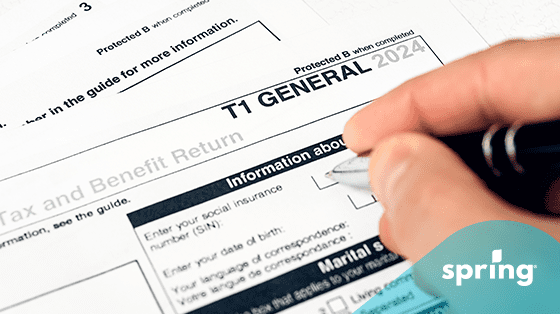Do you know what your credit score is? If you don’t, you’re not alone. But knowing your credit score, how it’s calculated, and what lowers it can help you stay on top of your financial health.
Your credit score is a 3-digit number that shows how likely you’ll pay your bills on time. Ranging from about 300 to 850, your credit score can affect whether you’re approved for a loan, get good interest rates, or receive special product offers from lenders. In some cases, when your credit is checked, this may lower your credit score. But in other cases – like checking your own credit score – your credit score won’t be impacted. To maintain a good credit score, make it a habit to know what your credit score is and how it’s calculated.
What Factors Affect Your Credit Score?
Not sure how your credit score is calculated? Your credit score is affected by payment history, credit utilization, credit history, public records, and — the focus of this article — credit inquiries.
Is your credit score low? Discover how to start building or repairing credit.
Does Your Credit Score Drop When You Check It?
When companies, creditors, or lenders make a request to check your credit report, this is called a credit inquiry. Credit inquiries can show up on your credit report and may affect your credit score. For example, if you’ve applied for multiple credit cards in a short period of time, multiple credit inquiries will show up on your credit report.
This could raise a red flag to potential lenders about your credit. But not all credit checks are created equal. While some will hurt your credit, others will not. These two types of credit checks can be split into two distinct categories: soft checks and hard checks…

Hard Credit Checks vs. Soft Credit Checks
When a creditor or lender needs to check your credit score, they’re making an inquiry into your credit. But not all inquiries will show up on your credit report and lower your credit score. Let’s take a look at the difference between hard credit checks and soft credit checks.
What is a Hard Credit Check?
Let’s say you’ve applied for a new credit card – one that has an annual fee and a few requirements. To approve you for this credit card, the bank needs to check your credit. They’ll do this by making a hard credit inquiry. This hard credit inquiry will show up on your credit report. Besides credit card applications, hard credit inquiries are also made for:
- Student loans
- Personal loans
- Car loans
- Mortgage applications
What is a Soft Credit Check?
Now let’s say you’ve applied for a loan – one your bank has sent you a preapproved offer for. While the bank may still want to look at your credit report, they’ll be making a soft credit inquiry because they preapproved you for this loan. A soft inquiry won’t affect your credit score and won’t show up on your credit report. Besides preapproved credit, soft credit inquiries are also made for:
- Insurance applications
- Employment background checks
- Rental housing applications
When Multiple Hard Checks Won’t Lower Your Credit Score
Though multiple hard checks can affect your credit score, there are certain times when they won’t all impact your credit score. Generally, if multiple hard checks are made for the same type of loan within 14 to 45 days, they’ll only be counted as one hard inquiry. For example, if you’re applying for several mortgages in an effort to get the best rate, the hard credit inquiries made for these mortgage applications will only count as a single inquiry.
Credit cards are an exception though. If you apply for multiple credit cards in a short period of time, each hard inquiry will impact your credit score.
How to Check Your Credit Score Without Lowering It
If you haven’t checked your credit score before, now’s a better time than ever to take a peek. Knowing your credit score will not only give you insight into whether you’re a good candidate for premium loan products but can also provide an accurate review of your overall financial health. And don’t worry, checking your own credit score won’t hurt it because it’s considered a soft credit inquiry.
Head to Borrowell to check your credit report for free. Borrowell helps Canadians monitor their credit and will send personalized tips to help you improve your score quickly. It costs nothing to sign up in two minutes – so what are you waiting for?
Spring Financial serves Canadians facing all types of credit situations with smart money products and credit-building solutions. Apply today to see how we can help!








